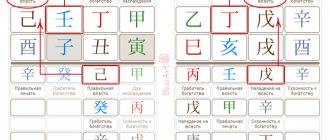The traditions of burying ancestors date back to the ancient history of mankind. It is not for nothing that funerals and other appropriate events after the death of a person are considered a ritual. The Eastern teaching of Feng Shui is based on the theory of the circulation of energies that people can control if they properly arrange their home, workplace and everyday life in general. It turns out that philosophy extends not only to the housing of the living, but also to the habitats of deceased people - cemeteries, churchyards. How to decorate the grave of the deceased according to Feng Shui, read the article.
Why is Feng Shui used in burials?
Feng Shui traditionally includes two energies, two sides of the coin - the energy of Yin and Yang, denoting the feminine and masculine principles. It is the Yin approach that is responsible for the arrangement of graves, that is, for the space where the dead live. And the bright energy of Yang is for organizing the space of the living and living.
In ancient China, great attention was paid to the creation of graves. Ceremonial burials were available only to rulers and the wealthy part of the population. For the funeral of the emperor, who was considered the successor of divine power, an entire tomb city was erected. The master who created the burial place of the emperor was doomed to death so that he could not repeat the masterpiece and share his knowledge with others. Proper burial became the key to the success and abundance of the dynasty for many centuries and generations.
Ceremonial burials in China
The most important task is choosing a place for the grave. The master had to select a territory that would meet the rules of prosperity. Geographical features were taken into account - mountains nearby, water streams, protection in the form of hills behind, natural “embraces” in the form of trees in the valley. A person was buried with his head towards the mountains, and a stone monument was installed at the feet of the deceased.
There is a separate direction of Feng Shui, which takes into account the rules for constructing houses according to natural landscapes, and these rules are intended for living people. But the organization of the cemetery also has its own logic, which takes into account the terrain, its elevation and depression, as well as the nature of the burial site itself and funeral attributes.
Feng Shui: teachings for the dead
At the beginning of its origin, Feng Shui was actually practiced for the dead, because... The Chinese used to believe that their luck depended on the location of their ancestors' graves. In principle, this is what they think now. In Russia, the dead were always buried in a common cemetery, with the exception of unbaptized people, as well as those who were excommunicated by the church, suicides, non-believers, and there were no problems. But the Chinese approached choosing the ideal grave site with complete seriousness; for them it is the duty of the whole family. If the grave of the deceased is in a good place, with good Feng Shui, then all descendants up to the fifth generation will benefit. Life will be easy, obedient children, money and fame will never leave the family, everyone will be healthy. In order to place the grave in the right place, feng shui masters were needed. They were respected because of their invaluable experience.
The lands for the graves were chosen carefully; the Chinese tried to choose the best places. It was believed that the soul of the deceased should see beautiful landscapes that would not disturb their peace. A good feng shui for a grave would include a pond of still water. If the grave is correctly oriented, then the entire family of the deceased improves their authority and well-being. Sometimes the Chinese postponed funerals for several months, all in order to find the best place.
After the death of a family member, the Chinese put coins, pearls, mirrors, gold jewelry and everything that would be useful to the deceased in the next life. Emperor Qin Shi Huang (2-3 centuries BC) built an entire burial complex, which included more than 8 thousand statues of warriors, horses, carts with food, weapons and all other utensils. This composition is called the Terracotta Army.
Even the shape of the plot was chosen to be square, rectangular or purse-shaped. It is believed that good Qi circulates in such an area. An area with a narrow front part has negative Qi and will interfere with the achievement of wealth and fame. Also, the site should not be wet, but much drier than the ground where houses are built. Water should not enter the grave, but should drain from the site. Otherwise, the body will decompose faster, thereby disrupting Feng Shui, and luck will turn away from the descendants. Feng Shui for the dead requires that a tombstone be placed at the head of the grave. And the descendants had to always monitor its condition, clean it from white spots and blackness in time, or misfortune would befall the family.
These traditions are still revered by the Chinese today. You can draw a parallel and see that our traditions of caring for graves are in many ways similar to the Chinese. After all, we also put up tombstones, weed graves and plant flowers. Some feng shui masters believe that the energy of the dead is good for the living. Others believe that dead fields destroy life, so they recommend cremation. In any case, the tradition of the living to turn to the help of the dead still remains.
Exactly when Feng Shui became a practice for the living is unknown, but now we use this art to improve our lives. Naturally, rituals for the dead are not performed on the living; they have been modified.
The connection between family history and burial method
To understand how burial traditions impact your family, take a mental retrospective of your own. You will probably notice that some relatives cannot find their place in life or achieve prosperity; some family members are constantly beset by troubles, serious illnesses, and tragedies. All this may be due to improper burial of ancestors. Superstitious people tend to believe in generational curses and evil eyes, but the matter may be different.
Think about where your ancestors are buried. Perhaps one of the grandfathers and great-grandfathers died in the war or went missing, was buried in a common grave or under a false name. All this energetically affects the well-being of the family and introduces into the life of the living the same disorder that the deceased experiences.
Burial tradition
There may be another situation: in a family, with the departure of one of the relatives, on the contrary, life improves, provided that he was sent to the next world with honors and with dignity, according to the rules. Having reflected on such accidents, we can come to the conclusion that the place and ritual of the funeral, as well as the timely installation of the monument, influence the future life of other family members.
It is recommended to visit the graves of relatives and soak up the wisdom of older generations. Proper and careful care of the headstone and grave provides support for ancestors for several generations of descendants. However, competent organization of a burial site is impossible without specific knowledge.
Grave care and memorial traditions
Responsibility for the ancestor is not removed from relatives even after the burial of the body. Caring for the burial site is considered mandatory. In the ritual calendar of China there is a special date that falls at the beginning of April - this is the Qingming holiday. In addition to the obligatory visit to cemeteries and saying prayers, the remembrance holiday involves the family working together to clean and sweep the graves.
Family members are prohibited from repairing chips, cracks and other defects on the grave on their own. In order not to come into contact with negative energy, this work is entrusted to a master who was not related to the deceased.
During the cleaning of graves, the Chinese hold an incense ceremony. The ceremony is carried out from the oldest family member to the youngest. Clothes on Memorial Day, as at the time of a funeral, should be light and discreet. Bright colors (including black) are prohibited. It is also not customary to wear jewelry and flashy accessories.
How to arrange a cemetery site according to Feng Shui?
You cannot place a solid stone on the grave - it blocks the flow of energies. It is better to order a monument from a noble material – marble or granite. You can choose a gravestone on the website pamiatnikgrodno.by.
It is undesirable to plant large trees on a grave site, since over time a powerful life form will penetrate with its roots under the stone and turn up the grave, destroying monuments and fences.
How to arrange a cemetery site according to Feng Shui
It is unacceptable to leave graves settled, out of shape, as well as broken, skewed crosses and monuments, cracked and dilapidated slabs. The tombstone should not have cracks or other signs of decay. Restore monuments in a timely manner.
Do not install high fences with massive straight metal bars that resemble lattice. Make sure that water does not erode the embankment or penetrate into the soil. Flooded graves are not good.
Are ancient traditions preserved in modern China?
The death of a loved one, according to the practice of the art of Feng Shui, is a leaking energy that the descendant must direct in the right direction. If you perform the ritual, then good luck will accompany your relatives for a long time.
The art of decorating with ancient symbols and grave teachings of Feng Shui are relevant in different countries.
Chinese believers believe that political instability in Taiwan is due to the fact that the Generalissimo's grave is not located according to the rules of the art of Feng Shui. The ruler sat on a living dragon, instead of a dead dragon.
Introduction
Recently, the Chinese feng shui system has become widespread throughout the world, not leaving Russia aside. Probably, many of your friends are guided by its fascinating principles when decorating their apartment, house or garden, attracting and retaining positive energy.
The principles of Feng Shui can become indispensable if they are correctly combined with the ancient traditions of the Russian people, as well as with modern sciences, in particular with ergonomics, construction biology, psychology and physiology of housing.
The basic principles of Feng Shui will help to achieve harmony between a person and the environment around him, which, in turn, will help improve relationships with other people and life situations in general.
In China, the garden and the house are considered one. The garden plot is often simple, but despite this, it is permeated with a special, serene mood. The reason for this, most likely, is that gardens are created with the aim of decorating the lives of the people around them. That is why in every Chinese courtyard and garden you can see observation decks, gazebos, lanterns for better lighting at night and other design elements.
Research today shows that most urban homes are completely unsuitable for habitation. Therefore, many people strive to buy a country house or cottage. But don’t think that unity with nature with the help of a personal plot does not require any effort. It is not enough to purchase a plot of land in an area favorable for living: when decorating and landscaping a garden, you must follow many rules and be guided by the principles of preserving positive energy, otherwise you can create sources of negativity with your own hands.
Feng Shui is an ancient Chinese art that examines man and his environment and tries to bring this structure into harmony.
Don't blindly follow the principles of Feng Shui. Before starting to design a personal plot, it is still advisable to consult with a professional. Listen to your intuition: if you don’t want to do something, you don’t need to go against your feelings, as this will not create favorable conditions for living.
We should not forget that anyone can learn the principles of the art of Feng Shui, but only a few will be able to correctly apply them in practice.





